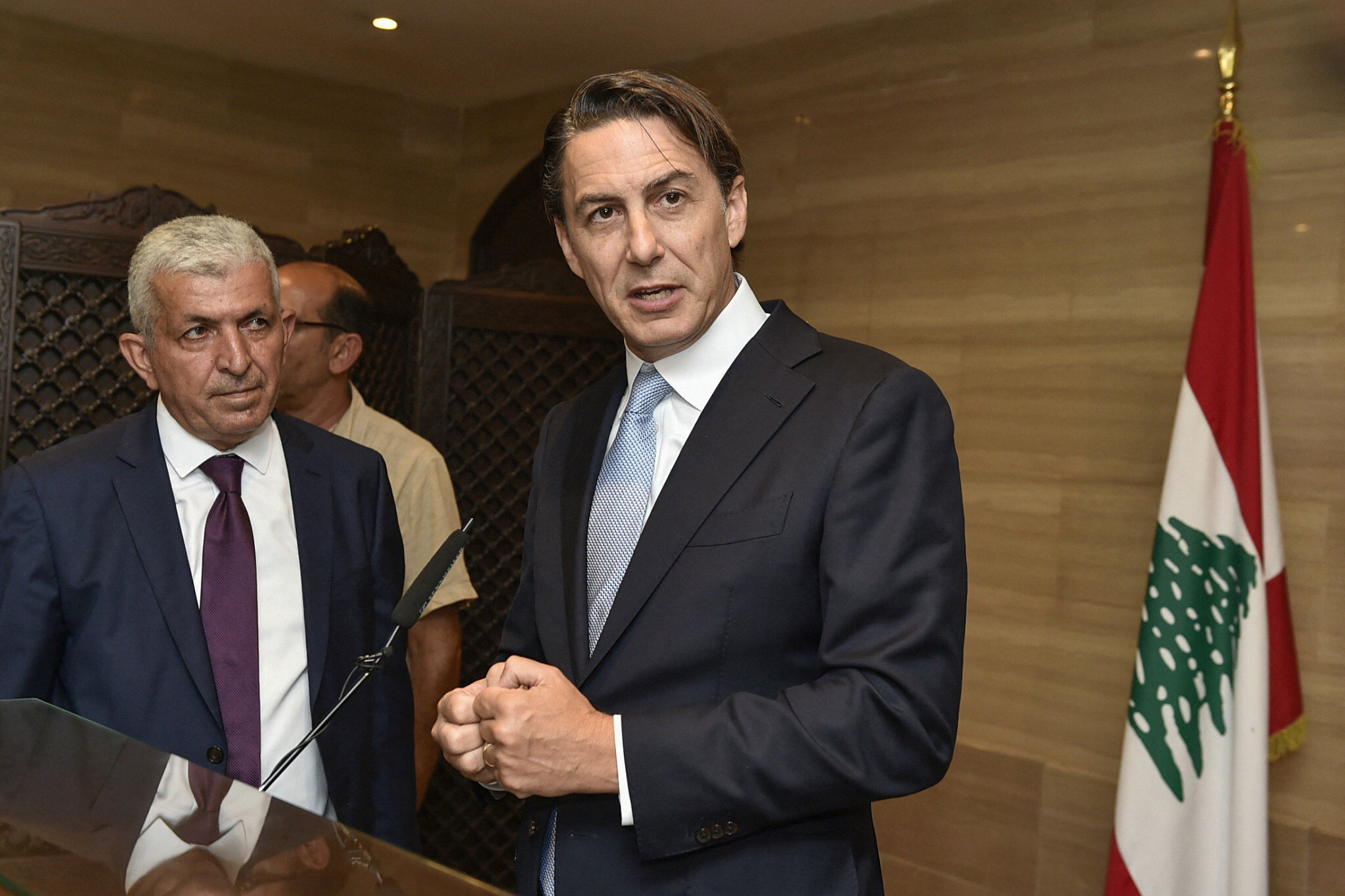International actors have increased efforts, at least publicly, to de-escalate tensions in Lebanon and avert an all-out expansion of the fighting between Hezbollah and Israel.
On Wednesday, United States mediator and special envoy Amos Hochstein visited Lebanese Parliament Speaker Nabih Berri. Berri expressed relief after Hochstein’s visit, describing that the “situation is better than yesterday” amid efforts to reach a ceasefire in Gaza.
Yesterday, French Foreign Minister, Stephane Sejourne, visited the Lebanese caretaker Prime Minister, Najib Mikati. He stressed that a ceasefire in Gaza is “necessary” for peace in the region. Sejourne’s visit also comes amid efforts to ease tensions and de-escalate the ongoing conflict.
Today, Egyptian Foreign Minister, Badr Abdelatty, arrived in Beirut from Cairo. Abdelatty is expected to meet with Lebanese officials to discuss the latest developments in the region. Egypt has been one of the main efforts involved in ceasefire negotiations alongside Qatar and a number of other actors.
The Israeli Onslaught Continues
So far, such ceasefire endeavors have miserably failed, with Israel continuing its onslaught on Gaza, Lebanon and other countries of the region. As of today, the official number of people in Gaza killed by Israel has surpassed 40,000, while estimates suggest that the actual total potentially goes into the hundreds of thousands.
Meanwhile, Israeli strikes have continued on southern Lebanese areas, including what might be the heaviest airstrike yet. The strike employed the use of bunker-busting bombs and destroyed four houses in the town of Kfar Kila, with the number of casualties yet undetermined.
Analysis suggests that such strikes are part of Israeli attempts to provoke a reaction from Hezbollah. Both Hezbollah and Iran vowed retaliation for the Israeli operation that killed Hezbollah commander Fouad Shukr and the assassination of the head of Hamas’s political bureau, Ismail Haniyeh, in Tehran respectively.
As matters stand, both scenarios of all-out expansion of the conflict and the attainment of a ceasefire remain plausible.
Ministry of Public Health Releases Cumulative Report
On Tuesday, the Lebanese Ministry of Public Health released its cumulative emergency report. The report highlights that the number of casualties in Lebanon has reached a cumulative total of 2321, including 547 deaths, 641 inpatients, and 248 individuals impacted by chemical exposure due to Israeli forces’ use of the internationally prohibited white phosphorus.
Earlier this week, the Ministry announced preparations for the scenario of an all-out conflict, which includes the building up of an inventory containing four months’ worth of critical supplies.
As of today, however, Lebanon’s healthcare system and the country’s overall infrastructure remain far from prepared to withstand an all-out expansion of the conflict.
In the meantime, the people of Gaza, Lebanon and the region continue to suffer from relentless Israeli aggressions. While international actors put in efforts to achieve a ceasefire, the measures they have hitherto imposed remain far from enough to put an end to Israeli authorities’ genocidal campaign.


